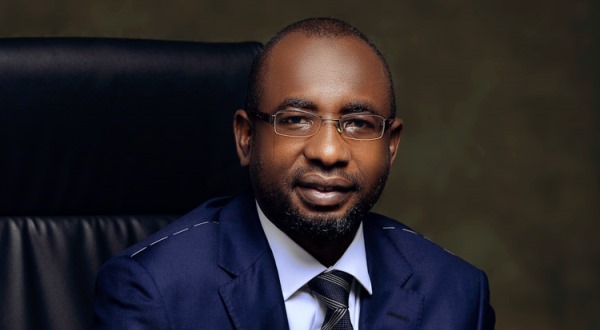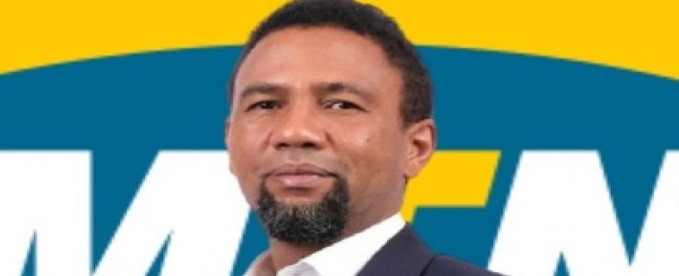Telecom
FG’s Intervention on Digital Literacy Covers Almajiris

The National Information Technology Development Agency (NITDA) says that the Federal Government efforts toward promoting digital literacy has started yielding results, indicating its 95 per cent digital literacy target by 2030 achievable.

?????????????????????????
Mallam Kashifu Inuwa, Director General of NITDA, made this known on Sunday at the graduation ceremony of 50 children, including 10 Almajiris at the Engausa Global Tech Hub in Kano State.
The young children were subjected to extensive training for two-weeks on innovative digital skills on Computer Networking, Installation of CCTV camera, Graphic Design, innovative creativity, among others.
Engausa Global Tech Hub is an Incubation centre, currently working in collaboration with NITDA in Kano, where young boys are being subjected to entensive training at their early stage, using Hausa language in building their skills on digital technology.
Inuwa said that the centre had in 2021 trained over 700 young boys who were selected from various rural communities in the state, adding that he was very happy that the centre has cooped young Almajiris into the system.
“We have been collaborating with Engausa like the founder said. As a result of intervention we have done for the centre last year, they had multiplied the number of people they trained. In 2021 they trained more than 700 people in this centre as a result of this collaboration,” he said.
Kashifu added that the agency have been expanding the collaboration and we are going to do more with them this year to see how we can help the less privileged children to have access to digital technology.
“One of our mandate is to implement the policy under the National Digital Economy Policy for digital Nigeria to logical conclusion in achieving the 95 per cent digital literacy by 2030.
“You know government cannot do it alone, we need to partner with centres like Engausa to achieve this. So, we are working with them to even expand this centre beyond Kano to other States and also to see how we can equip them more,” DG added.
Explaining further, Kashifu said; “we are also looking at how we can assist the children who have participated in this programme to start their own businesses.”
Earlier, the founder of the centre, Mr Mustapha Ringim, said the centre was out to bridge the productivity gap among the young people, especially those who cannot make it in formal school.
“I realised that there are a lot of things that I can offer to the community concerning breaking some barriers and bridging some gaps which are limiting the productivity of our youth, especially the downtrodden ones at the grassroot, the Almajiris, and school-drop-outs who cannot continue their studies due to lack of proficiency in English Language, among other things,” he said.
Ringing said he realised that Language should not be a barrier to achieving one’s dream, especially when it comes to global world. He argued that there are lot of developments in countries which are not using English Language as medium of learning skills, like European countries where English is not well spoken but still technology, innovation and creativity is flourishing in those countries.
“So, I realised that English Language is not the only medium of learning skills, it is not the only medium of prosperity when it comes to knowledge and when it comes to practicing what you know.
That is why I break the language barrier of English and domesticated the technology and the skills I have in me so that the people will easily tap from my knowledge through the use of Hausa language for better understanding of the subject matter, ” he explained.
Telecom
PAT Taps Osi as CEO

Pan African Towers (PAT), a Nigerian infrastructure provider serving 9mobile and Spectranet, has appointed Echezona Osi as chief executive officer.

Echezona Osi
Adefolarin Ogunsanya, company’s, board chairman, explained in a statement that Osi would succeed Oladipo Badru, whose tenure lasted nine months in acting CEO position. Osi has more than 28 years of experience in the telecommunications sector across various regions of Africa.
Prior to his appointment as CEO, he had served as the head of network deployment at Airtel Nigeria, operations director and chief technical information officer at MIC Tanzania, chief technology officer roles at IPT PowerTech Nigeria, Rhino Niger Networks and Biswal Nigeria.
He obtained a degree in electrical/ electronic engineering from the University of Benin and a postgraduate diploma in data science and business analytics from the University of Texas.
Telecom
NCC Introduces N10m Licence Fee for Bulk SMS Service

Companies sending bulk international text messages, also known as Application-to-Person (A2P) messages, will now have apply for a licence that costs N10 million.

This is part of new rules introduced by the Nigerian Communications Commission (NCC) aimed at cleaning up the system, fighting fraud, blocking spam messages and stopping money from leaving the country unchecked.
These A2P messages are the kind customers get from banks, online stores, hospitals and political campaigns, automated texts sent from apps to their phones.
According to the commission, the bulk international text message system has been poorly regulated, allowing misuse and invasion of privacy.
“The International SMS Service Ecosystem in Nigeria has not been fully brought under regulatory control. It has been observed that the excessive use of the Short Message Service has led to fraud, spam and illegal activities,” the NCC said.
The regulator warned that without action, the problem would worsen as more people use mobile phones and digital services.
To solve this, the NCC is creating a central platform, or gateway, through which all international bulk text messages must pass through.
The agency said this would help to monitor messages in real time, ensure proper fees are paid, and make sure the money stays in Nigeria where it can contribute to the economy.
As part of the incoming change, service providers must follow strict rules, including strong data protection, spam filters, and message encryption.
Also, they must also work with local mobile networks and make sure all messages come from a verified sender
The NCC warned that any message without a proper sender ID will be blocked and not delivered to users.
To protect users from unwanted texts, the new rules say companies must get clear permission before sending any promotional content.
The rule also says people must also be able to choose whether they want to receive such messages or not.
Companies are now required to keep records of all messages for at least six months and must clearly state all charges involved.
The NCC said fees for help requests, cancellations, or service info must be transparent and not include hidden charges.
The commission will issue licences to several providers to encourage healthy competition but may limit new licences if needed.
Only companies that show they can stop fraud and safely deliver messages will be allowed to operate. They must also regularly report their message traffic and finances to the NCC.
It warned that any company that breaks the rules risks getting fined, suspended, or having its licence revoked.
Offences like charging illegal tariffs, ignoring security rules, or avoiding taxes will be punished, the NCC said.
The commission added that the new rules follow the Nigerian Data Protection Act 2023 and support the federal government’s goal of strengthening cybersecurity and controlling Nigeria’s digital space.
The framework will also be reviewed from time to time to keep up with new technology and market trends.
Telecom
MTN Nigeria Targets $1Bn Cloud Market with Largest Modular Data Centre

MTN Nigeria has launched what it claims is the country’s largest prefabricated modular data centre, marking a bold push into the country’s fast-growing cloud market and taking aim at global giants such as Amazon Web Services, Microsoft Azure and Google Cloud.

Karl Toriola, CEO, MTN Nigeria.
The shift comes as demand for cloud services in Nigeria soars — driven by the uptake of mobile apps, fintech tools and e-learning platforms — while foreign providers have become costlier in the wake of the naira’s sharp devaluation.
“This is one of the biggest data centres in West Africa and probably one of the biggest in Africa,” said Karl Toriola, CEO, MTN Nigeria.
He described the new Tier III-certified facility, with locally hosted cloud services, as “transformative for the technology ecosystem in Nigeria and very supportive of the federal government’s agenda”.
MTN Nigeria, the country’s largest telecoms provider, has so far invested $120m in the first phase, delivering an IT load of 4.5MW. A second phase, set to double capacity to 9MW, is budgeted at $135m.
“We already have data centres that are running our existing capacities,” Toriola said.
“We will go to 9MW in short order, possibly 14MW, and we can expand even further.”
He said the facility would allow local hosting for tech developers, large enterprises including banks and oil companies, and government agencies — markets long dominated by foreign cloud providers.
“Multinational companies such as Netflix, Facebook and Instagram can also host a lot of their data here. That improves the quality of service and reduces the cost of storage,” he added.

 Broadcasting2 days ago
Broadcasting2 days agoNigeria Week Ahead: Inflation, Oil and Naira in focus

 News2 days ago
News2 days agoEFCC: Accusations Against Our Chairman Are Baseless and Misleading

 Telecom23 hours ago
Telecom23 hours agoMTN Nigeria Targets $1Bn Cloud Market with Largest Modular Data Centre

 Telecom23 hours ago
Telecom23 hours agoNCC Introduces N10m Licence Fee for Bulk SMS Service

 E-Business23 hours ago
E-Business23 hours agoFirm Highlights Top Risks of Quantum Computing

 General News23 hours ago
General News23 hours agoAM Best Reaffirms Stable Outlook for Cyber Insurance Market

 Telecom23 hours ago
Telecom23 hours agoPAT Taps Osi as CEO

 General News23 hours ago
General News23 hours agoBurna Boy Distances Himself from Meme Coin, Labels Crypto as Fraud























